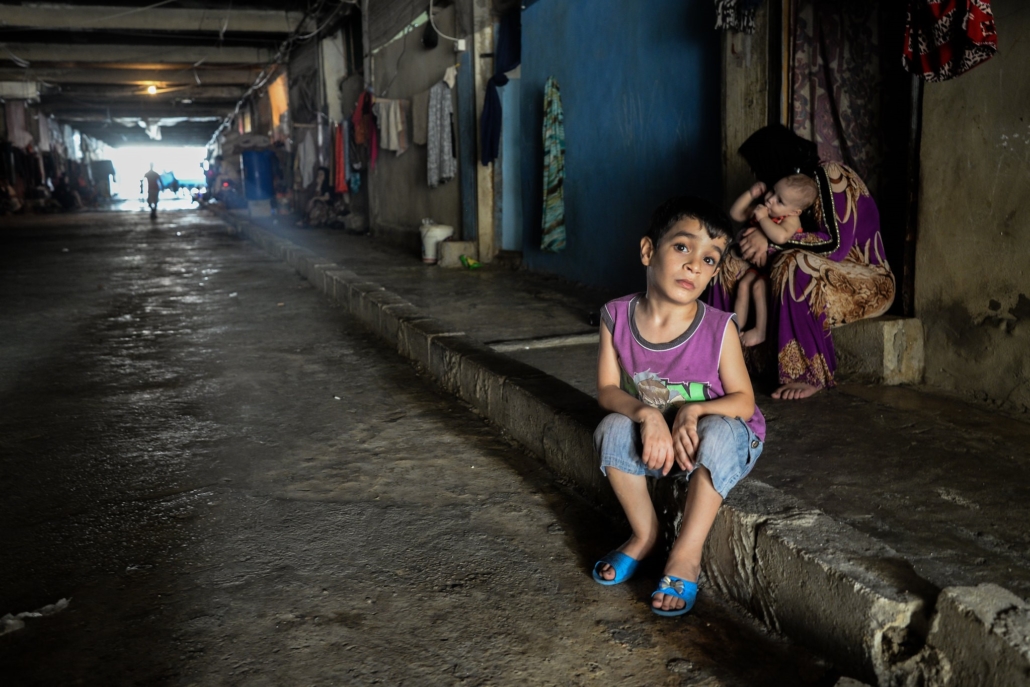Why Syrian Children Feel Their Country Is Unsafe

The year 2021 marks 10 years since the start of the war for Syria and its citizens. This war started shortly after Syrians launched the anti-government Arab Spring uprisings. Authorities swiftly took action and pushed back against Syrian citizens, leading to the deaths of over 500,000 people and 55,000 children, and causing Syrian children to feel their country is unsafe.
Product of War
This war scattered Syrian children throughout several countries as refugees. A Save the Children report has displayed testimonies from over 1,900 children ages 3-17, who are currently located in Syria, Jordan, Lebanon, Turkey and the Netherlands. About 87% of these children say they can never see themselves returning to Syria. Meanwhile, one in three children is still living in Syria. They go on daily runs through rumble-torn streets, collecting freshwater from large coolers and sitting in abandoned buildings. Some even sit with their parents at their still open food carts in front of bombed-down buildings. Understandably, these children wish they were anywhere else.
While many children in Syria do not feel safe, often children who have relocated do not feel safe either. Many children who left Syria with their families now find themselves in refugee camps, crammed into small tents with a dozen other refugees. The children feel that life is about nothing but war these days and wish to go to a place where they can be safe with toys, warm beds, plenty of food and education.
Lack of Education
About 42% of Syrian children did not attend school at the start of the war. In fact, Syria does not offer education to more than 3 million children. Meanwhile, only 31% of Syrian children have access to education in Lebanon and only 49% have access to education in Jordan. Additionally, about 25% of the schools undergo continuous bombing. As the war continues, poverty is continuing to rise, schools are experiencing destruction and teachers are becoming scarce. These circumstances help explain why Syrian children feel their country is unsafe.
Without schools, many children who still live in Syria feel no attachment to their homes and their communities. Children who still live in Syria and partook in the Save the Children survey said that they have no connection to Syria, and 58% of those surveyed have said that they experience discrimination. In fact, 44% of the children living in Lebanon and Jordan have experienced discrimination in their neighborhoods and schools.
A Better Future
When asked what they wish for the most, 26% of the children wished for a better future without violence. However, even after fleeing war-torn Syria, a country that many Syrian children feel is unsafe, refugee children frequently face extreme poverty. In Lebanon, which is facing an economic crisis, rapid spreading COVID-19 cases and an overabundance of refugees, about nine out of 10 Syrian refugees are struggling with severe poverty.
Some hope exists, though. About 70% of Syrian refugee children in the Netherlands have been receiving an education, with opportunities and freedom. About eight in 10 of these children say they wish to stay in the Netherlands where they continue to feel safe. However, while some children have been able to get opportunities for a better life, it is important to remember that millions of Syrian children are still in peril.
Solutions
Organizations like UNICEF are doing their part to help children who have relocated due to the violence in Syria. In fact, UNICEF’s efforts have led to polio vaccines, nutrition plans, safe drinking water, education services, infection prevention, a push for educational services and an expansion of social services and social skills to ensure Syrian children have the best tools for a better future. Through efforts like UNICEF’s, hopefully, the situation for Syrian children will improve.
– Claire Olmstead
Photo: Flickr
